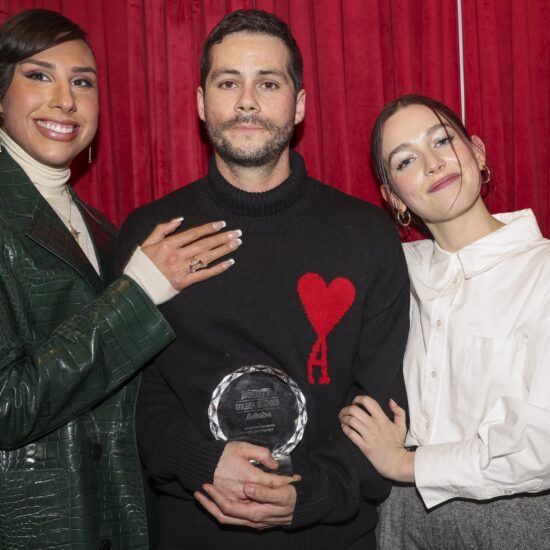
At this year’s Annecy, the most important animation festival in the world, Basque animations were out in force.
With a diverse showcase ranging from the nostalgic cartoon charm of “Conej Steps Out” by student outfit Funnie Fantasies, to UniKo’s tantalising taster excerpts for feminist story “Sultana’s Dream” by Isabel Herguera and the short “Body of Christ” by Beatriz Lumez, Basque animators made a mark.
The festival’s spotlight on Spanish female creators further underscored this region’s depth of talent. Coupled with an array of compelling projects seeking co-production, from Agurtzane Intxaurraga’s “Run, Kuru, Run!” to “The Invisibles” by Imanol Zinkunegi, it’s clear: Basque animation is a force on the rise. According to San Sebastian Festival director José Luis Rebordinos, the Basque Country’s “fledgling animation industry is an opportunity.”
Youth Focused
European, national, and regional support will be key to bolstering this momentum. A question, brought into focus by COVID-19, was how countries’ national and regional economies could recover and grow sustainably. That led governments, both federal and regional, to focus on growth industries, in particular ones that are youth friendly, and animation is one of those industries.
Animation is similar to genre in that it is a push phenomenon. Younger creators who have a film project seem more frequently wanting to produce either animation or genre.
At a recent policy session co-organised by Culture Action Europe, Gijs de Vries, the former Dutch Secretary of State and MEP presented his paper “To make the silos dance. Mainstreaming culture into the E.U. policy.” He highlighted that worldwide “cultural and creative industries are among the largest employers of youth and employ more women than men.” Nationally, Spain is stoking the fire of these industries with favourable incentives. This is being taken further by Bizkaia, the Basque Country province extending from Bilbao, where tax breaks hit up to 70%, among the highest deduction rates in the world. No other rate registered in Olsberg-SPI’s Global Incentives Index 2023 reaches such heights.
A Rich History
Great animation being produced in the Basque region is not a new phenomenon. The late Juanba Berasategi was a pioneer of the scene, making “Kalabaza Tripontzia,” in 1985. He went on to found Lotura Films in 1992, which continues to produce projects, describing themselves as “The house of stories. The home of Basque language film.” Another talent whose journey began in the ‘80s is Isabel Herguera, whose film “Sultana’s Dream,” will premiere in main competition at San Sebastian. She began studying fine art in Bilbao and on leaving entered a thriving video art scene. “This background that we got naturally, through the culture that was happening in the Basque country at the time defined the way we began looking at films,” she tells Variety. Herguera described how during the dictatorship, France was never far away, so accessing all kinds of experimental culture was possible in Basque “when something is prohibited it becomes even more appealing. It was not so easy to access it, but once it was here, it helped the cultural explosion that came later,” Herguera recalls. The Goya and Annecy nominated director has combined her career making shorts and now a feature, with time working in L.A. at animation studios, as well as becoming a professor of experimental animation.
Isabel Herguera, Iván Miñambres
Courtesy of Isabel Herguera, Iván Miñambres
The Producers
Iván Miñambres, one of the producers of “Sultana’s Dream” and CEO of UniKo, acknowledges the importance of regional culture, describing Berastegi’s film as having “tackled a series of tales in which the atmosphere, mythology and Basque culture were prominent. Having a unique language and such a rich culture has meant that many of the films produced in our region are characterised by this kind of content,” he tells Variety, adding: “In my opinion, the key lies in being glocal. Telling global stories from the essence of the local.”
Miñambres and the team at Uniko represent what can happen when good producers harness financial incentives, cultural resonance and talented filmmakers. A shining example is the Uniko produced “Unicorn Wars,” Alberto Vázquez’s apocalyptic fantasy. It combined backing from regional Spanish governments in Galicia and the Basque Country as well as independent French co-producers, and has achieved significant success for an adult animation with GKids picking up North American rights. Variety places it “in contention” for Oscar recognition. UniKo’s producing approach comes down to thre things: “We always bet on universal themes and stories that transcend time and place. In this way, our creations are more easily accessible to any audience and have a broad international reach. Additionally, we always collaborate with auteurs who provide a unique perspective to both the narration and the artistic proposal of the productions.”
“Lastly, having a committed artistic team aligned with our vision is crucial. Animation projects are very lengthy, and it’s essential to ensure that each project develops with cohesion and mutual understanding,” Miñambres explains.
Global Competition
With Bizkaia tax breaks reaching up to 70% of spend, it would take a brave country or region to try and better that. It is key, still, to promote all the factors that make the region attractive. It’s no surprise traditional creative hubs are the great cities of the world, places that combine the jumble of experience and life that many talented people crave, and thrive off. In Bilbao, San Sebastian and Vitoria-Gasteiz Basque has three quite distinct small cities. Culturally it’s unique, Lonely Planet is right in describing it as ‘unlike the rest of Spain.’ With its own language, world class food and wine, and a distinctive geographic and cultural landscape Basque sits in an enviable position.
The Next Generation
Funnie Fantasies, a team of animators and artists are alumni of DigiPen Institute of Technology based in Bilbao, the education institute responsible for developing talent in the region and which produced their Annecy-selected short ‘Conej Steps Out’. It represents one retro inspired strand of the new generation, a strand passionate about the techniques of the fledgling days of Max Fleischer, Walt Disney, and MGM. “You cannot emulate transparent watercolours or gouache brush strokes with digital media that work with zeros and ones,” background artist Aitor Olano tells Variety, with his fellow Funnie Fantasies Pablo Rio, Leyre Zapata, and Bruno Santoro sat alongside him nodding their approval. In pursuing the silly, surreal, and vintage they consider themselves outside of any ‘scene’, but it is clear DigiPen was a key enabler to their learning their craft and meeting each other to form what could become a fun and unique voice in animation. Educational hubs like DigiPen will need to grow and keep ahead of the demand for talent. Lack of talent is a key risk for Miñambres: “The growth and consolidation of the animation industry on a global level requires a constant high demand for qualified professionals,” he said.

Aitor Olano, Bruno Santoro, Leyre Zapata, Pablo Rio
Courtesy of Funnie Fantasies
Sustainable Growth
In their bid for growth, industries often focus on expanding volume, and the Basque region is no exception. By laying a robust foundation with incentives and education, it’s paving the way for a flourishing animation sector. Already, Basque producers have delivered global successes. As Miñambres astutely points out: “Such incentives, sustained over time, can help establish and consolidate an animation infrastructure. By providing a more stable and predictable financial framework, tax incentives can help stabilise the animation sector, which is especially important in an industry that often has very long production cycles.”














